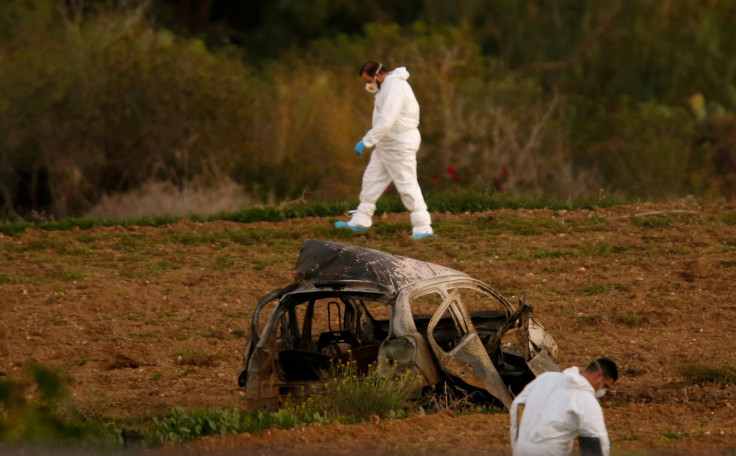Brothers On Trial For Murder Of Maltese Anti-corruption Journalist

Two men went on trial on Friday for the murder of Maltese anti-corruption journalist Daphne Caruana Galizia almost five years ago to the day she died in a car bomb.
Brothers Alfred and George Degiorgio are accused of setting off the device, which killed the 53-year-old journalist outside her home on Oct. 16, 2017. They pleaded not guilty.
In an interview with Reuters earlier this year, George Degiorgio confessed to the crime. A lawyer for the brothers also said the two men were seeking a pardon in return for divulging "everything we know about other murders, bombs and crimes".
Their request for a pardon has not been accepted and the jury of five men and four women have been instructed to consider only what they hear in the courtroom.
Caruana Galizia was a household name in Malta for her investigative reporting. The killing raised questions about rule of law in the European Union's smallest member state.
According to the indictment, George Degiorgio set off the deadly bomb from a yacht berthed off Malta's coast as Alfred Degiorgio and another accomplice, Vincent Muscat, acted as spotters.
Caruana Galizia died instantly. "Parts of her body were flung out of the car, while others remained inside the burning vehicle," the document reads.
BUSINESSMAN ARRESTED
The Degiorgios and Vincent Muscat were arrested in December 2017 and have been behind bars since. Muscat admitted his involvement in a 2021 plea bargain in return for information and is serving a 15-year jail term.
Much of the case is being built around testimony and phone conversation recordings by the murder plot middle-man, Melvin Theuma, who was granted a presidential pardon in return for information late in 2019.
He alleged the plot was commissioned by top businessman Yorgen Fenech, who led a consortium that was controversially awarded a government contract to build a power station in 2015.
Fenech was arrested in November 2019 and is also awaiting trial.
Caruana Galizia had revealed the existence of a secret company which allegedly was meant to funnel funds to Panama-registered companies belonging to then energy minister Konrad Mizzi and the government chief of staff Keith Schembri.
No evidence that money changed hands has been produced.
A Reuters investigation after her death had established that the company belonged to Fenech.
Fenech's arrest led to the resignation of Schembri and Prime Minister Joseph Muscat. Both deny any involvement in the journalist's murder and have not been prosecuted.
The courtroom was packed for Friday's opening session and several members of the Caruana Galizia family were sat at the front of the public gallery. The Degiorgios face life imprisonment if convicted.
The fifth anniversary of the murder will be marked with a rally on Sunday which will be addressed by European Parliament president Roberta Metsola.
(Editing by Crispian Balmer and Andrew Cawthorne)
© Copyright Thomson Reuters 2025. All rights reserved.





















